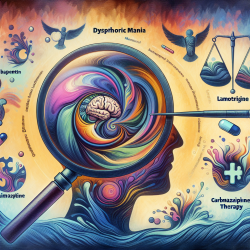The COVID-19 pandemic has posed significant challenges to various groups, particularly those with chronic health conditions like congenital heart disease (CHD). A recent study published in the European Journal of Cardiovascular Nursing provides valuable insights into how adults with CHD from Belgium, Norway, and South Korea experienced the pandemic's impact on their lives. This blog explores the findings of this research and offers guidance on how practitioners can improve their skills by understanding these outcomes.
Understanding the Study's Findings
The study surveyed 716 adults with CHD to assess the pandemic's impact on their social lives, mental health, and professional lives. Despite the disruptions caused by COVID-19, the differences in patient-reported outcome measures (PROMs) and patient-reported experience measures (PREMs) between pre- and peri-pandemic periods were found to be negligibly small.
- Social Lives: 80% of patients reported negative impacts on their social interactions.
- Mental Health: 58% experienced mental health challenges during the pandemic.
- Professional Lives/Education: 51% faced disruptions in their professional or educational pursuits.
The study also highlighted that while many patients felt worried and stressed, a significant portion reported no substantial changes in PROMs and PREMs. This suggests a resilience among CHD patients that could inform future therapeutic approaches.
Implications for Practitioners
The findings offer several implications for healthcare practitioners working with CHD patients:
- Focus on Resilience: The resilience demonstrated by CHD patients during the pandemic highlights the importance of fostering this trait in therapeutic settings. Practitioners can incorporate resilience-building strategies into their care plans.
- Personalized Care: While group-level data showed negligible changes in PROMs and PREMs, individual experiences varied. Practitioners should personalize care approaches by actively engaging with patients about their unique experiences during the pandemic.
- Mental Health Support: Given the reported mental health challenges, integrating mental health support into routine care for CHD patients is crucial. Online therapy services can be an effective tool in providing this support.
The Role of Online Therapy
The pandemic has accelerated the adoption of online therapy services. For practitioners, leveraging these services can enhance access to care for CHD patients who may face barriers to in-person visits. Online platforms allow for flexible scheduling and can help maintain continuity of care during challenging times.










